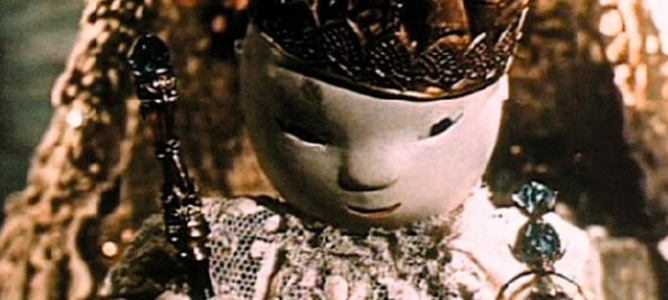Showing @ Filmhouse, Edinburgh, Mon 9 – Sun 29 Apr
Last month saw the centenary of internationally renowned Czech illustrator, puppet maker and animated film director, Jiří Trnka. To celebrate the occasion, Filmhouse is showing a retrospective of the great Bohemian’s work. But apart from a startling lack of vowels in his surname, what makes Trnka and his output so interesting?
Born to middle-class parents in the city of Plzen, Trkna had a penchant for puppet making from a young age. Completing his apprenticeship at Prague’s School of Applied Arts in 1935, Trnka soon carved out a career as an illustrator. Beginning his work in animation shortly after the Second World War, he excelled in his field and won a Cannes Film Festival award little more than a year later. However, not at ease with traditional animation, he soon began experimenting with puppets. Artistically active for more than twenty years, by the time of his death in 1969, Trkna’s oeuvre more than justified the (albeit slightly disingenuous) title of ‘The Walt Disney of the East’.
Filmhouse’s selection displays a varied cross-section of Trnka’s work. The Emperor’s Nightingale is an adaptation of the Hans Christian Andersen tale, which achieved wide international acclaim, while A Midsummer Night’s Dream (1959) is a seminal piece of animation often regarded as Trnka’s magnum opus – it was also his last feature length creation. Trnka Shorts for Adults is a set of films spanning the puppet master’s entire career, including his John Ford parody Song of the Prairie (1949) and anti-Nazi project Springman & SS (1946).
Shorts closes with Trnka’s final work: The Hand (1965). A scathing criticism of state interference with the work of the artist (remarkably prescient considering after 1968 all Czech rock bands were required to sit exams in Marxist-Leninist theory) The Hand was also Trnka’s personal favourite. With an often gothic aesthetic and innovative use of stop-motion, Trnka’s animations are never puerile, meaning any adult wanting to experience the wonder of childhood would do well not to miss these superlative works.
